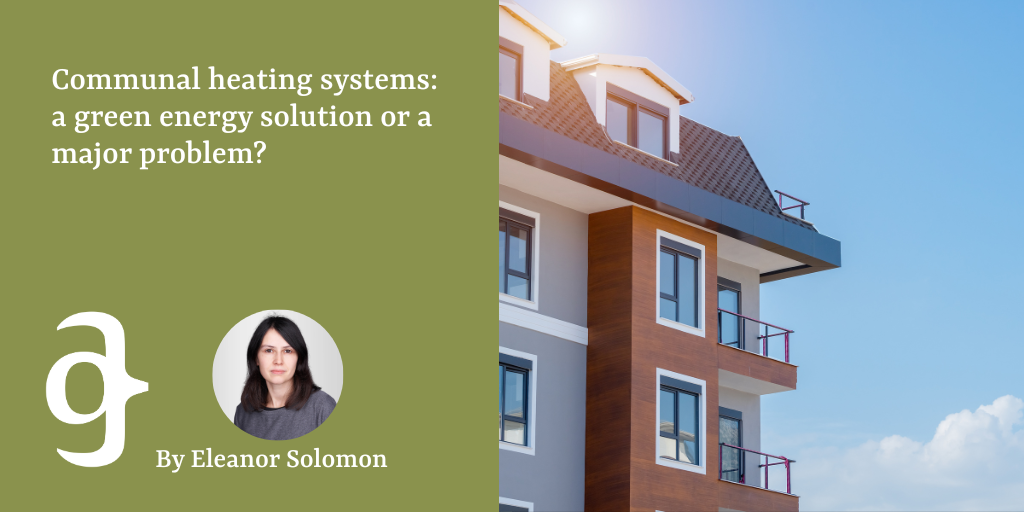Communal heating systems: a green energy solution or a major problem?

Increasingly, newly built flats and estates are equipped with electric communal heating systems rather than gas combi-boilers. The systems frequently use relatively new technologies such as heat pumps, a central boiler with heat interface units (HIUs) and/or a Combined Heat and Power generation unit. These systems are designed to be energy efficient, and no doubt when they work, they may be. As a solicitor specialising in building defects I see the examples of these systems going wrong. My colleagues and I have seen more and more examples of issues with these systems in recent years. I outline some of the common issues below.
Billing
Electricity is more expensive than gas per unit. In addition, communal heating systems are currently not subject to the energy price cap (see explanation here from Switch2, who provide billing for a lot of residents on these systems). That means that residents served by a heat network will be keeping a close eye on rising bills. Unlike with a self-contained system, where residents take their own meter readings, many residents who are joined to a communal heating system report confusing and incorrect bills.
Lack of heating and hot water
It is not uncommon to find communal heating systems which frequently fail, leaving residents without heating and hot water. Sometimes there are complete outages, sometimes variable temperatures or low water pressure, meaning that heating and hot water can’t be used in the normal way.
Excess heat
Newly built properties with communal heating systems are often very well insulated. That is great in winter, but in summer they can become unbearably hot, especially if there are uninsulated hot pipes behind plasterboard or under ceiling tiles, letting out heat into the building which has no way to escape.
Maintenance
Communal heating systems require specialist maintenance by experts. The systems may need to be looked at holistically and maintained regularly. Making ad-hoc changes in one flat can affect the heating and hot water pressure and supply in other flats.
What can be done?
If you have a communal heating system which is not working as it should, and you are a tenant or a leaseholder, it is very likely that you can bring a legal action to make your landlord or freeholder make repairs and compensate you. It is best if a group of residents make the claim together. Firstly, because each can provide evidence to support the others’ claim. Secondly, because the works you may be asking the landlord to do could be extremely expensive, and a judge will be more likely to order the landlord to do the works if they benefit a lot of people, rather than just one.
If you live in a property with a communal heating system that does not work properly, email hne@anthonygold.co.uk with brief details of your situation.
* Disclaimer: The information on the Anthony Gold website is for general information only and reflects the position at the date of publication. It does not constitute legal advice and should not be treated as such. It is provided without any representations or warranties, express or implied.*

No comments